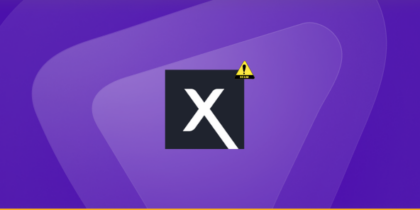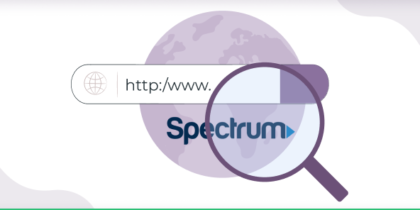There’s perhaps no other phrase that captures the history of the digital privacy legislation in India than, “There are decades when nothing happens; and then there are days when decades happen.” In case you haven’t heard, or worse, in case your primary source of information has already been forced to censor out any relevant information regarding this, Facebook and Twitter currently find themselves locked in a legal battle that could decide the issue of digital privacy for more than a billion people in India. Of the several services under Facebook’s belt, none of them have been the subject of tribulations comparable to that of WhatsApp.
With Twitter’s Indian offices being subjected to a police raid and the threat of new IT laws looming, what lies next in the fight for digital freedom in India?
What’s Happened
WhatsApp has gone through an internal revolution of sorts after the notorious Capitol riots in the US. Facebook’s decision to ban and actively mark information shared by Donald Trump as false heralded a shift in how Facebook would deal with fake news and claims, even from governments and heads of states. Naturally, that change in attitude found its way to WhatsApp.
Considering how WhatsApp has nearly 400 million users in India, it is unquestionably the most prominent digital mode of communication in the country. The government intends to pass a law that would allow it to have oversight over the content being published on social media sites. Some of the finer details include the ability to censor and outright remove content deemed objectionable, while a local body being in charge of reviewing the daily content has also been mooted.
Other services like Signal, which surged in popularity early in 2021 owing to their near-impenetrable encryption protocols, would also be forced to provide the government access to all the information it requests.
Twitter was a little late to this change in social media sites’ stance in the face of fake news being weaponized. However, on 18th May 2021, it took its most visible and clear step in standing up to the Indian government’s attempts to silence critics. A tweet shared by Sambit Patra, the national spokesperson of the ruling Bharatiya Janta Party, in which he claimed to have exposed an opposition party’s plot to incite division in the country, was marked as “Manipulated media.”
AltNews, an independent fact-checking organization in India, further corroborated Twitter’s stance when it revealed that the document shared by Patra in his tweet was on a forged letterhead. However, the government seems bent on pressurizing Twitter into retracting its “Manipulated media” warning, and as such, Twitter’s Indian office was served with a legal notice by the Delhi police.
A Brief Background
In February 2021, an Indian climate activist, Disha Ravi, was arrested under the Unlawful Activities (Prevention) Act. She had been campaigning on behalf of the farmers that had been protesting on the border of the Indian capital, New Delhi. Her arrest came after a “toolkit” was tweeted by the climate activist Greta Thunberg. The toolkit was sort of an instruction manual, with tips to farmers and their supporters on how they could amplify their results.
Around the same time, Twitter was forced to disable thousands of pro-farmers protest accounts at the behest of the Indian government. The official line was that the accounts were part of a massive digital campaign to cause chaos and anarchy, with the intent to incite violence.
Then, in April 2021, the Indian government tried to muscle Twitter into removing any posts and accounts criticizing the government, Prime Minister Modi, and their handling of the coronavirus pandemic. Curiously, Twitter seemed to bow down to the pressure yet again as it came under severe criticism for enabling the governments’ digital censorship related to COVID-related deaths in the country.
However, with the Sambit Patra tweet, Twitter seemed to finally put its foot down and appears ready to take on the government in maintaining its stance.
How Have the Tech Companies Responded?
Naturally, it wasn’t long until WhatsApp sued the Indian government. Interestingly, WhatsApp’s parent company Facebook has indicated that it might be willing to comply with the new law if the government gave them a chance to recommend some modifications to the language of the law.
Even though the Indian government gave all the social media sites 36 hours on 25th February 2021 to comply with these new regulations, none of them agreed to do so. However, the latest developments, including the revelations about Twitter’s past role in helping the government suppress crucial information online and then the fracas around Patra’s tweet, has escalated the confrontation between the government and the social media sites.
Like WhatsApp, Twitter has also indicated that it would be going to court to counter the accusations of bias and incitement to violence being leveled at it by the Indian government.
Watch this space as new developments come in.
What It Means for Privacy
All of that leads to the penultimate question, i.e., what does it mean for an average user’s online privacy in India?
Well, there’s no clear answer to it since it’s unclear how the government will proceed, how the courts will rule, and whether social media sites will ultimately accept the new law or exit the country.
If the courts do rule in favor of the government and these sites decide to exit India, your best bet to retain access to them will be via a Virtual Private Network (VPN). And even then, not just any VPN will do other than a premium one. If it comes to that, then PureVPN would be the best option to go for with its 6,500+ in 140+ countries would ensure you never have to worry about not losing access to Facebook, WhatsApp, or Twitter. More importantly, its 256-bit encryption is top-of-the-line, guaranteeing no compromises on your privacy while online.
If, assuming the worse, the social media sites decide to cave in and give the Indian government the scale of access they’re demand, then I’m afraid this is when you must decide how important are these social media sites for you since the best option would be to leave these sites altogether. Drastic? Yes. Unwarranted? Absolutely not. There is nothing more important than your privacy online and if there’s no ambiguity about the absolute violation of that sacred right…then it’s time to burn those bridges and never look back.



